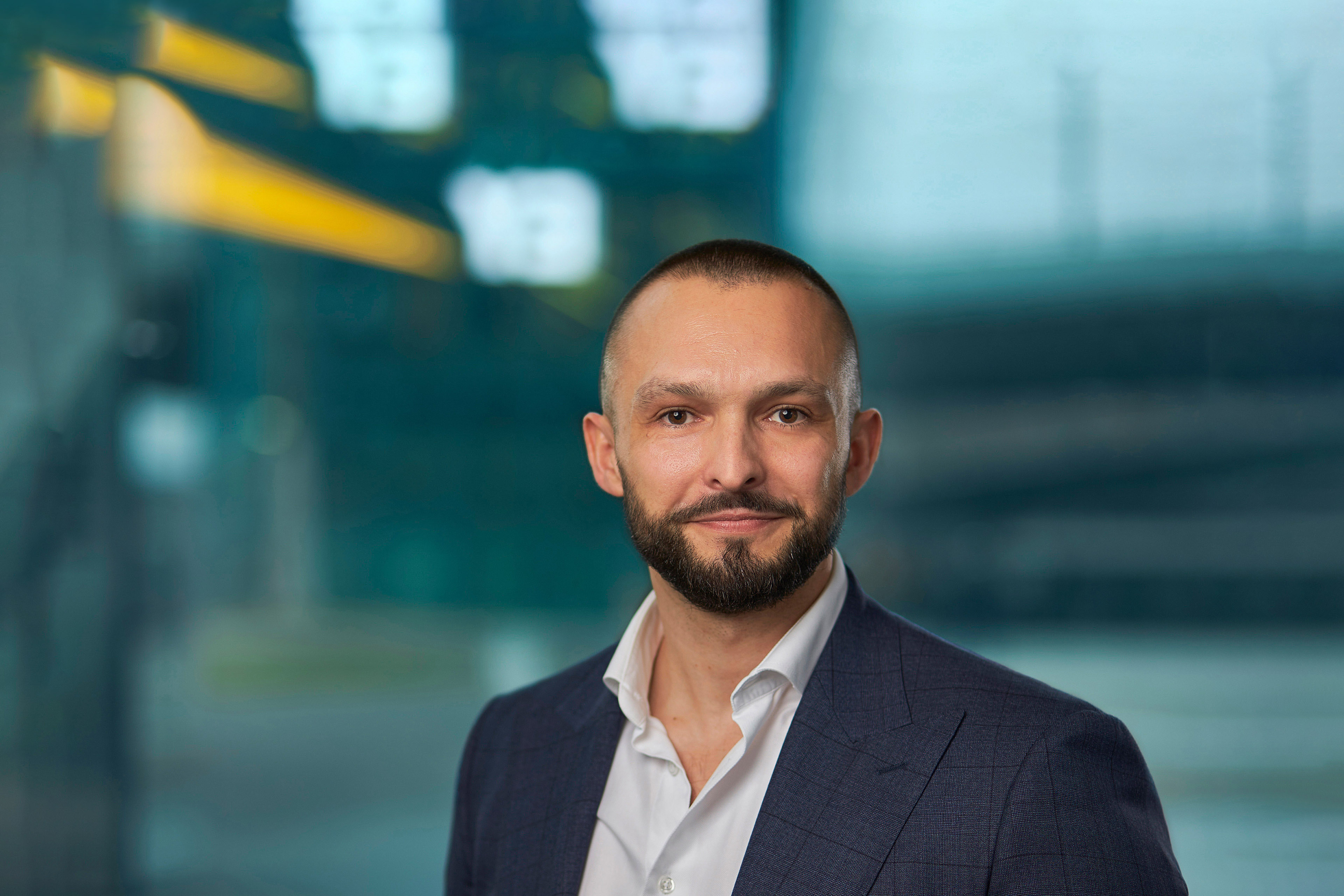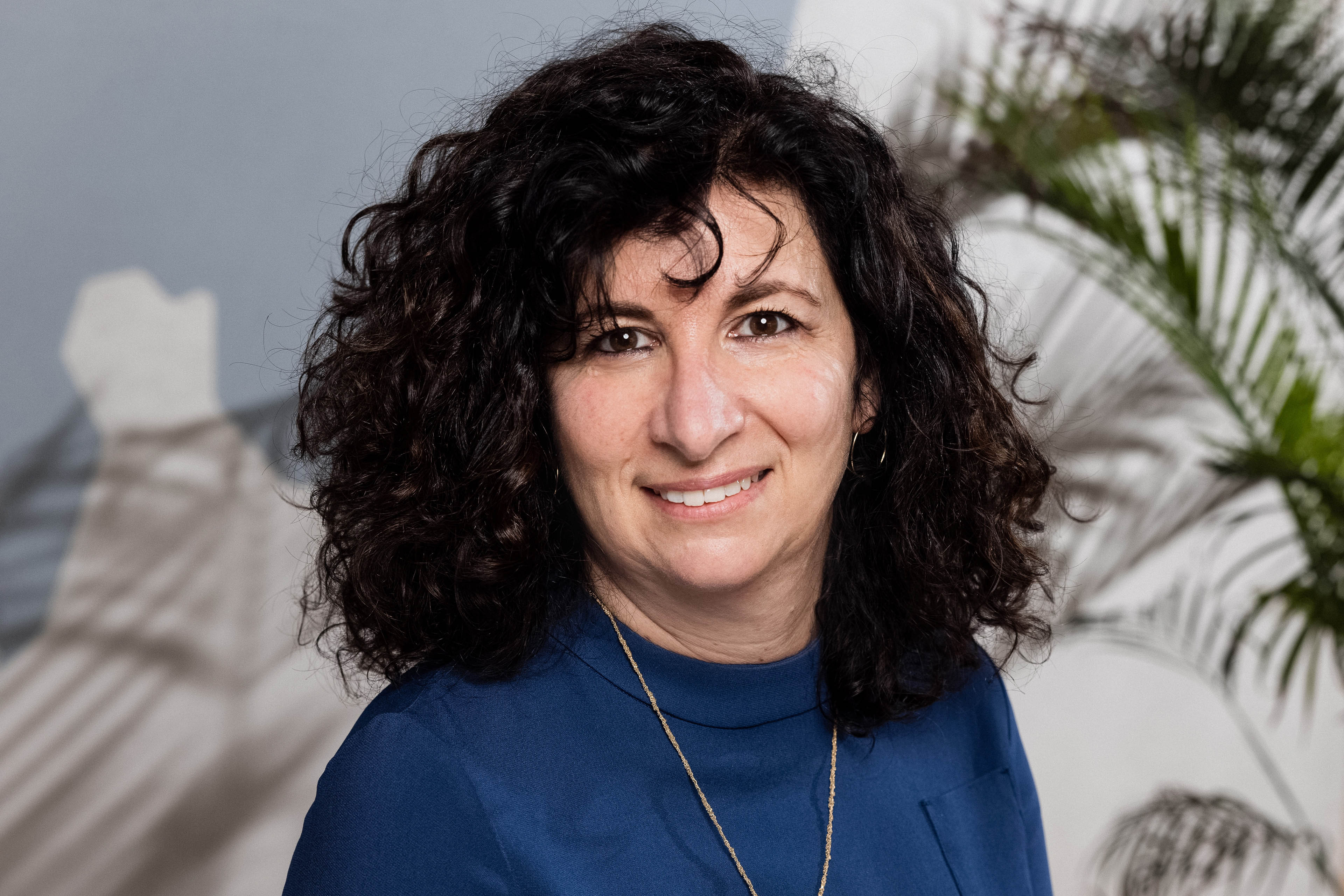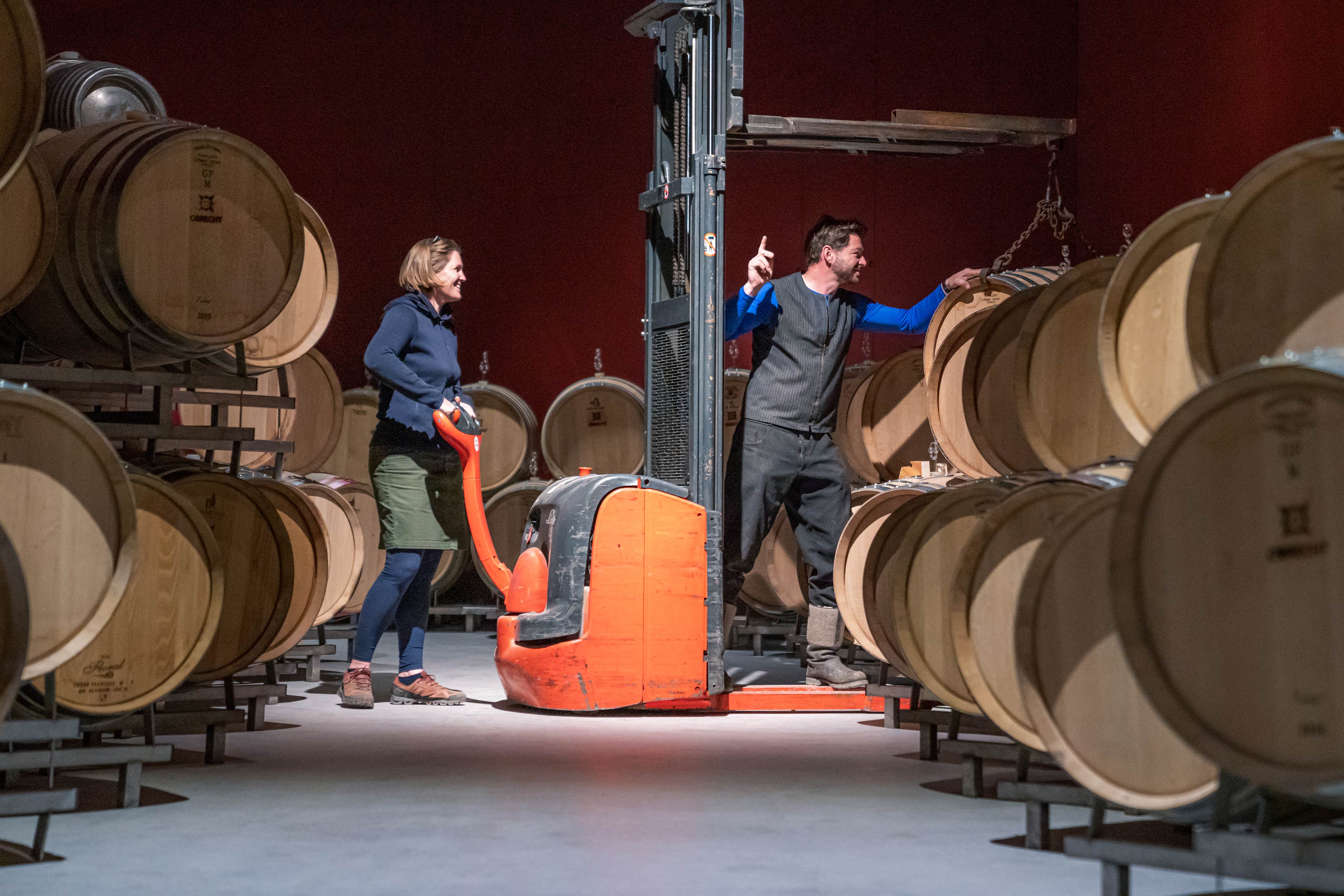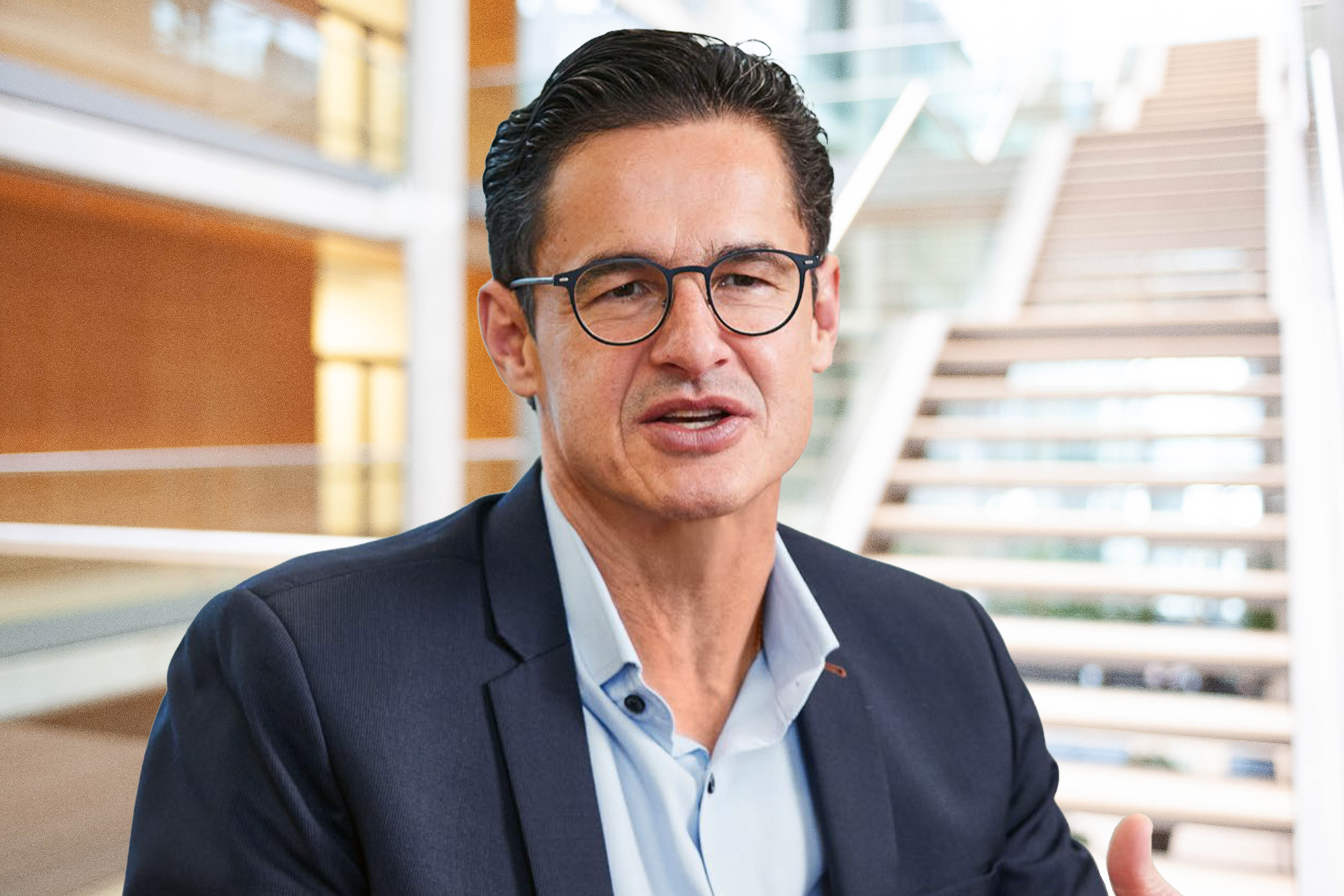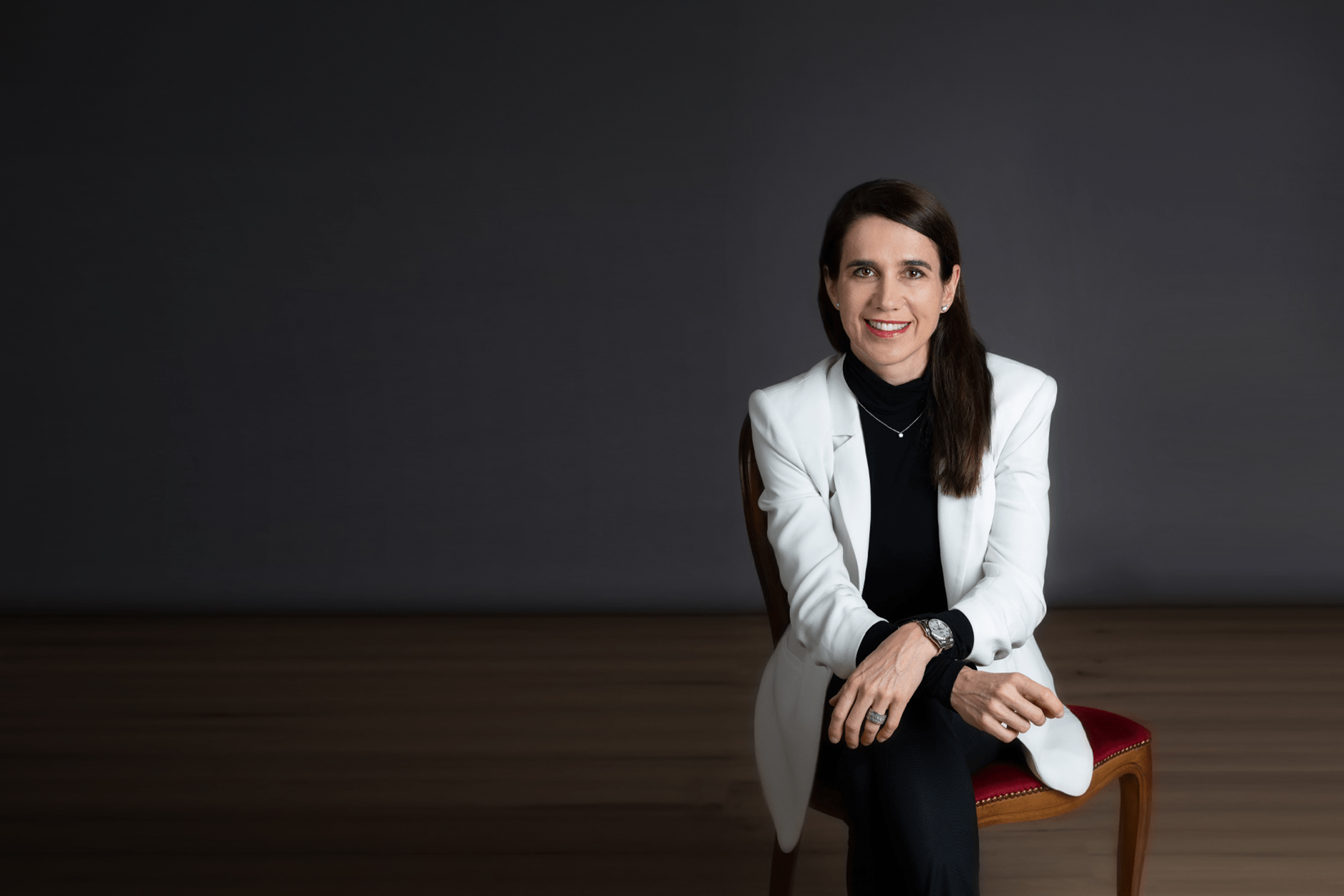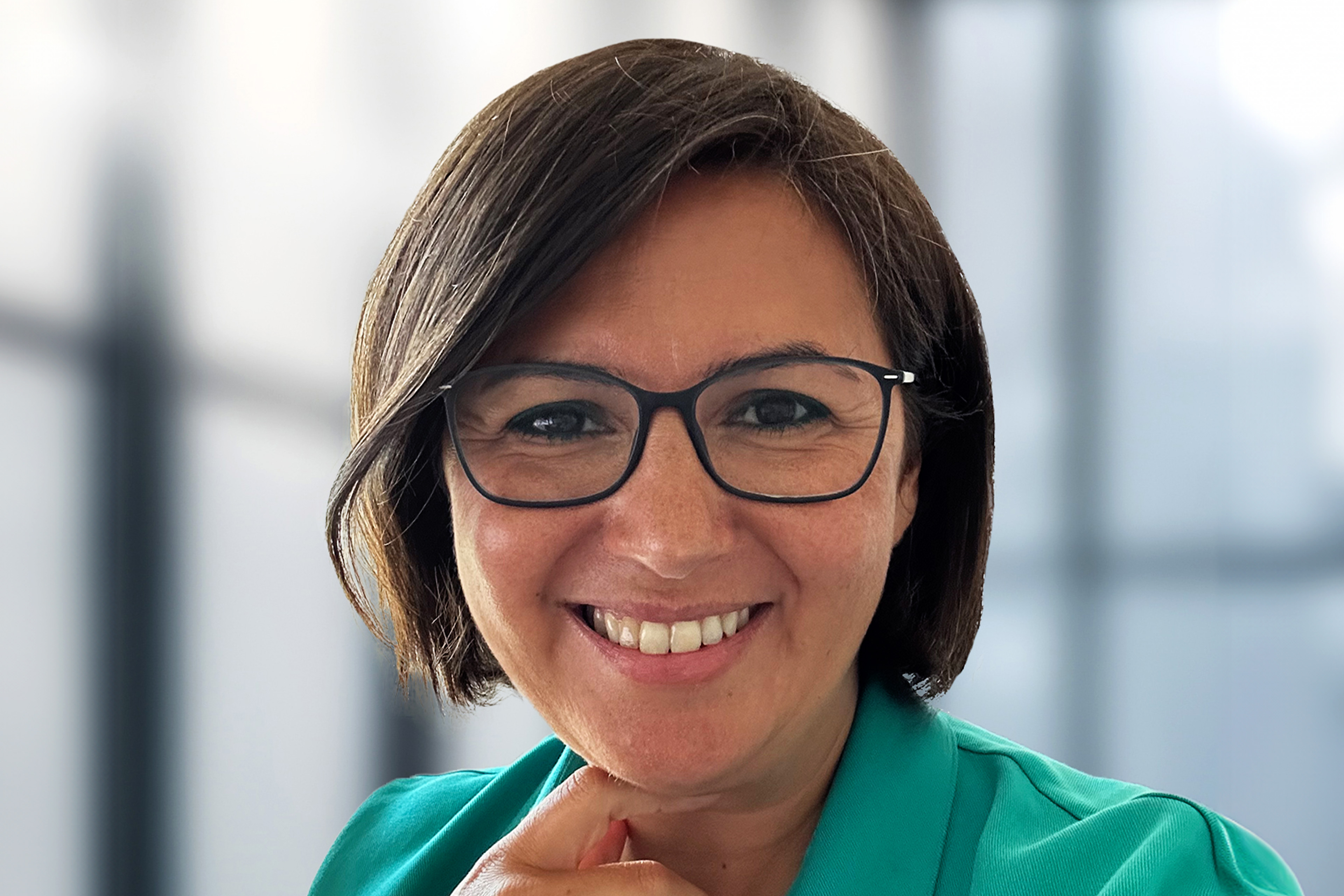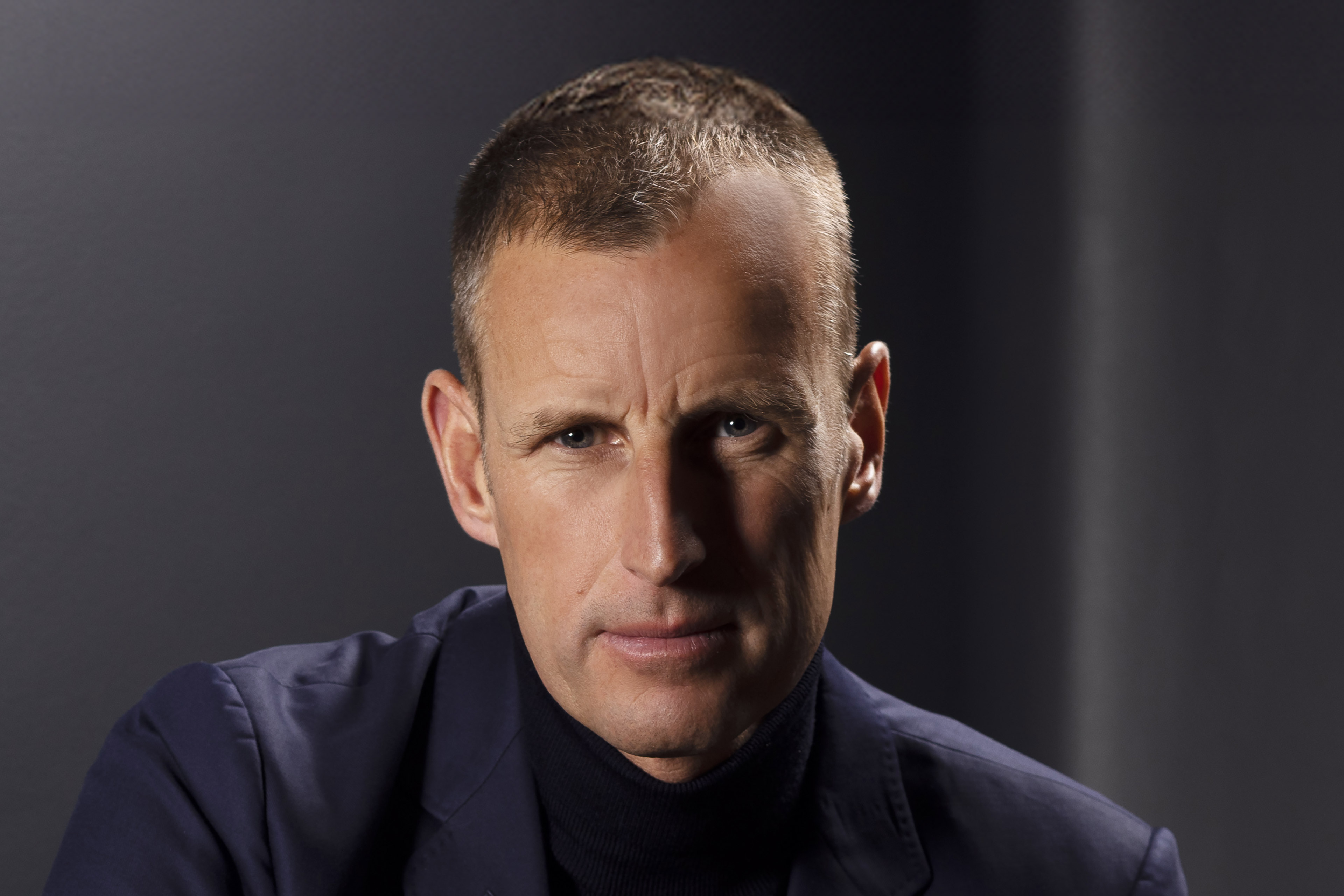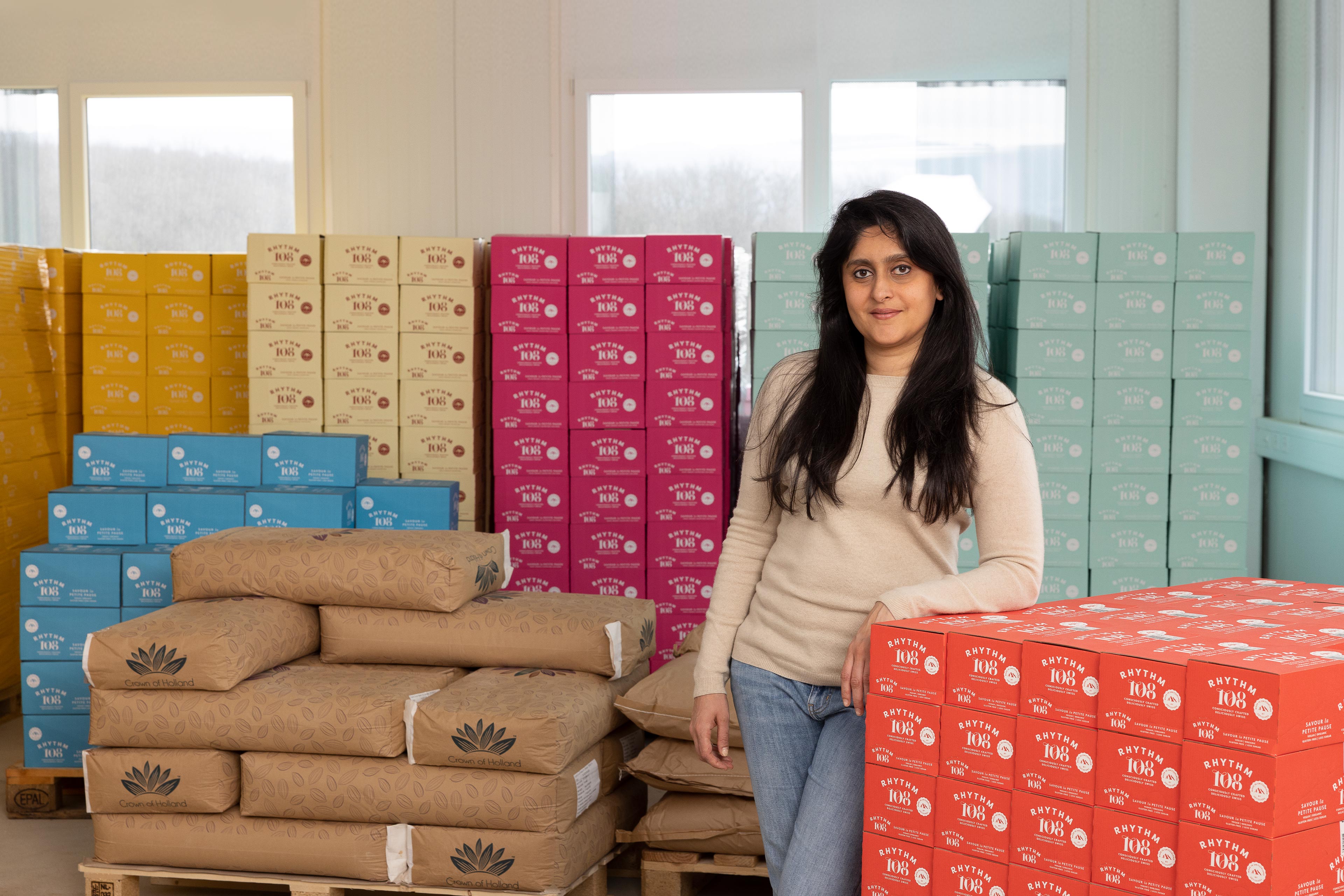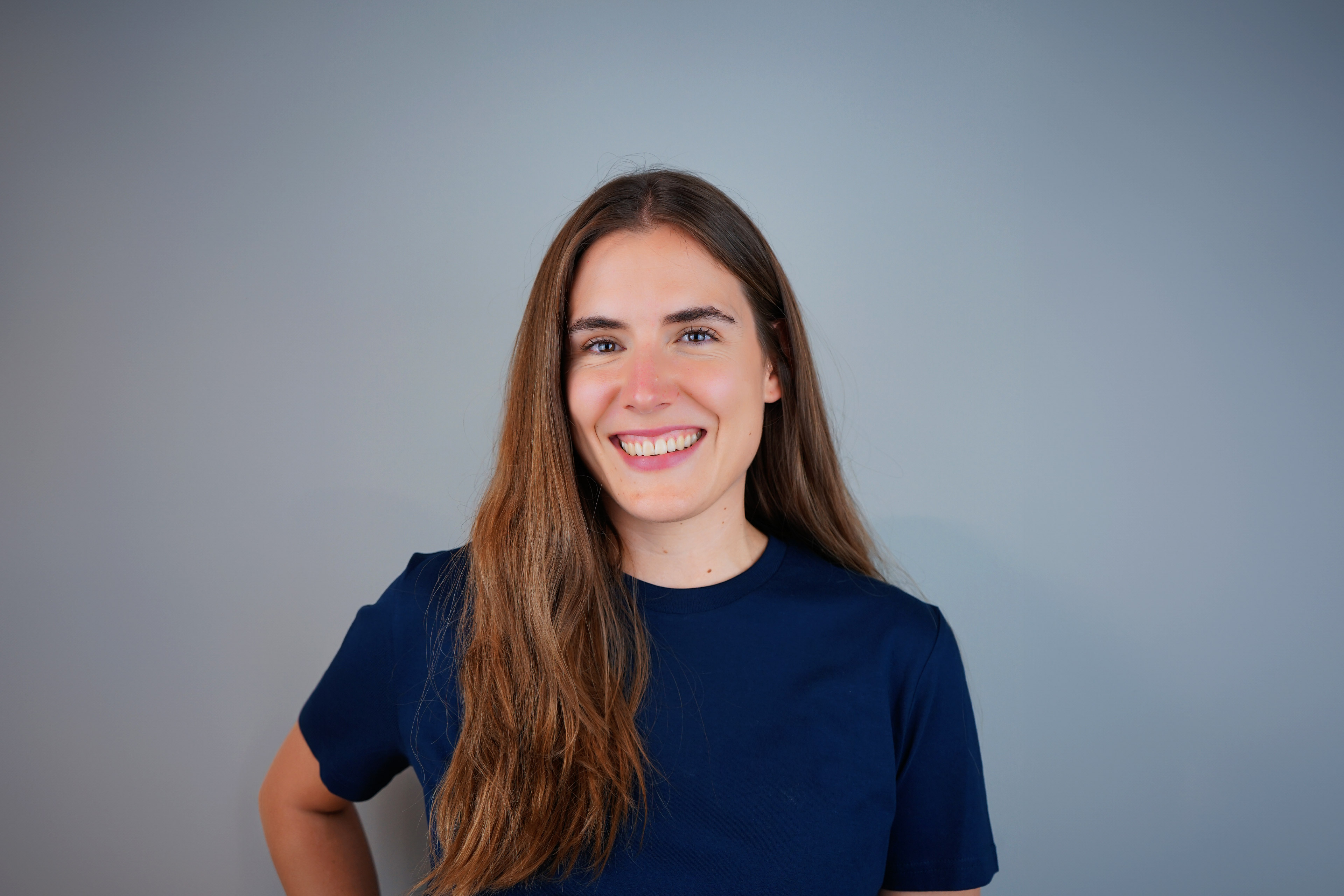EY refers to the global organization, and may refer to one or more, of the member firms of Ernst & Young Limited, each of which is a separate legal entity. Ernst & Young Limited is a Swiss company with registered seats in Switzerland providing services to clients in Switzerland.

“For all the uncertainty, this crisis is an accelerator of change.
Stefan Rösch-Rütsche
As Country Managing Partner at EY in Switzerland, Stefan Rösch-Rütsche leads the Swiss practice with more than 2,300 employees. Stefan is passionate about building diverse teams, supporting inclusive growth, empowering employees and activating the full potential of EY in order to collectively deliver the best client experience possible. Especially now during these uncertain and challenging times.
As we emerge from the acute phase of the COVID-19 crisis, our journey towards a new normal begins. EY asked various thought leaders and decision makers to take stock and share their insights into what’s next. Up first: Stefan Rösch-Rütsche, Country Managing Partner at EY in Switzerland, talks about how the crisis is driving change and what positives he hopes to take into the future.
How would you describe the current environment?
We are operating in uncertain and challenging times. This is true not only in terms of the health and wellbeing of our people, but also in terms of the way our business operations will develop and what our clients will require from us going forward. But for all the uncertainty, I believe times like these serve as an accelerator of change. Changes that we have historically not managed to implement within a certain time, changes that would normally take three, four, five years to implement, suddenly become possible within weeks. I strongly believe that EY as an organization will not return to the old normal. We will take the positives from this crisis with us as we move into the future.
Do you remember the moment COVID-19 first affected you?
I remember it exactly. I went on vacation to South Africa with my family in mid-February. Boarding in Zurich was completely normal. But on arrival in Cape Town we went through medical screening. This was the wake-up call, the moment I realized something big was happening. After this experience I read up on COVID-19 as much as I could during my vacation. When we got back to Zurich two weeks later the tragedy in the north of Italy was big in the news, Basel Carnival was cancelled. It was the start of the crisis in Switzerland.
From a business perspective, what was your initial response in managing this crisis?
From the very beginning, the most important aspect of this crisis has been the health and safety of EYs people. We took a relatively conservative approach. We were early in telling our employees to work from home and have remained conservative in our plans to reopen offices. At the same time a very high priority are our clients and how we can best support them through these uncertain times. It is all about understanding what businesses need as well as what our wider society requires to get through these challenging times.
It is all about helping people navigate through this crisis and solidarity is therefore key.
How is it for you working in the “new normal”?
I could never have imagined how intense it would be working from home. The most important learning from this new way of working is the increased need to communicate with our people. We have been committed throughout to open, honest and transparent communication in terms of where we stand and the measures we are taking to protect the health of our people, the careers of our talent, and the sustainability of our practice. I believe this has helped make our partners and employees feel more comfortable. In terms of clients, we have enabled discussions through platforms and best practice groups where clients can exchange experiences and ask questions. It is all about helping navigate through this crisis and solidarity is therefore key. And staying close, although we are physically apart.
How are EYs clients being affected?
The impact is fundamentally different from industry to industry, client to client. Life Sciences clients in general have been doing well, while the travel and leisure industry, as an example, has been hit hard. The needs of our clients depend on their business activities. During the acute crisis phase, efforts were naturally focused on the immediate crisis response – health and wellbeing of employees, liquidity planning and financial stability. Now, the dialogue is shifting to future-proofing the business, therefore, the conversations are turning to more strategic projects – future operating models, supply chains of the future, further digitalization of activities.
It is in these times of uncertainty where you really get to know your people.
For you as a Country Managing Partner, what stood out the most?
It is in these times of uncertainty where you really get to know your people. As an organization, we have been able to stand together and navigate this crisis. We have worked together across teams, service lines, sectors, and competencies. This is a very significant learning experience. For all the tragedy of this crisis, the team experience has been incredible. It has been a rewarding experience for me to help leading our practice in Switzerland through these times. I much hope that we will be able to take all the valuable insights with us into the next phase.
Looking ahead, how do you expect the next few months to develop?
We are expecting a cold summer. Hopefully, activities will start to recover in fall, provided there is no second wave and provided that the virus does not mutate. I do not think that we will go back to the old normal, to how we did business even in the recent past. I am confident that we will be able to combine the best experiences and lessons from this crisis with the good ways of doing business of the past. I expect we will rethink the way we use our office space – using office space more as a hub for meetings with teams and clients. We will also adapt our learning and development programs into virtual programs, the way we approach business development, how we interact with clients, and how we run core business functions.
Where do you see EY in two years?
When I look back at the 2008 financial crisis, at the time we reinvented ourselves and we invested. I believe this is a recommendable approach in today’s uncertain times as well. Preparing for the future demands of our business means investing into our talent, and investing into our own technology transformation. Becoming even more data and technology driven is a key pillar of our global strategy. With the right investments, we will be well placed to serve the needs of our clients.
Finally, what would be your three key takeaways to prepare for what’s next in the “new normal”?
- Stay healthy – take a conservative approach to avoid a second wave and prioritize health and wellbeing for everybody.
- Be agile – develop capabilities that allow you to respond to various situations without specific scenarios.
- Invest into the future – take a forward-looking approach and invest into talent and technology.
Featured articles and interviews
Sebastian Tobler, Co-founder and CEO of GBY SA
Sebastian Tobler is co-founder and CEO of GBY SA, which has developed a new approach for the rehabilitation of people with reduced mobility. An automotive engineer by training and trade, Sebastian Tobler’s life took a new direction when a bike accident left him paralysed. Alongside his entrepreneurial activities, he heads the SCI-Mobility Lab as Professor at the Bern University of Applied Sciences.
Originally from Naples where she grew up and studied physics, Luciana Vaccaro moved to Switzerland in 1996 to complete a PhD in microengineering at EPFL. She held various positions in research and education at the universities of Neuchâtel and Lausanne before heading the Grant Office at EPFL. In 2013 she took the reins of HES-SO as rector. Last October, Luciana Vaccaro was elected president of the umbrella organization swissuniversities and started in her new position on 1 February.
Francisca Obrecht, Weingut Obrecht
Peter Rupp grew up in Sargans, Switzerland, around 20km south of the Hilti headquarters in Liechtenstein. He studied Economics in St. Gallen, then took a post-graduate degree in Engineering in Winterthur.
Peter Rupp grew up in Sargans, Switzerland, around 20km south of the Hilti headquarters in Liechtenstein. He studied Economics in St. Gallen, then took a post-graduate degree in Engineering in Winterthur.
Monika Zihlmann, Global Digital Commercial Platforms
Monika Zihlmann, Vice President Global Digital Commercial Platforms at Smith+Nephew, discusses the trends and pressures shaping the medtech industry and explains why now is the time to embrace a multi-channel customer engagement model.
Serra Bicak is Senior Vice President Reckitt Africa Middle East at Reckitt Hygiene. She has lived and worked in eight different countries for various roles during her career in fast-moving consumer goods. Serra Bicak is passionate about diversity, equity and inclusion (DE&I) and leads Reckitt Hygiene’s gender balance program.
Patrick Pruniaux, Chairman & CEO of Sowind Group
Patrick Pruniaux has a background in business administration and began his career in the watch industry at TAG Heuer. Always fascinated by innovation, he joined Apple in 2014 and oversaw the launch of the Apple Watch. Following a move to Kering in 2017, he managed the Ulysse Nardin and Girard-Perregaux watch brands. In 2022, Patrick Pruniaux spearheaded the historic management buyout and now serves as CEO of these two brands within Sowind Group.
Siddhi Mehta, founder and CEO of Rhythm 108, talked to us about sustainability, craftmanship – and how her company combines heritage and innovation to take the Swiss chocolate tradition into the future.
Judith Häberli, CGO and co-founder of Urban Connect as well as EY Entrepreneur Of The Year™ 2023 Switzerland winner in the category "Emerging Entrepreneur", shares her motivation for starting a corporate mobility platform and explains why real change only happens when companies work together.



